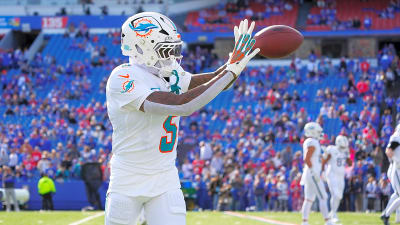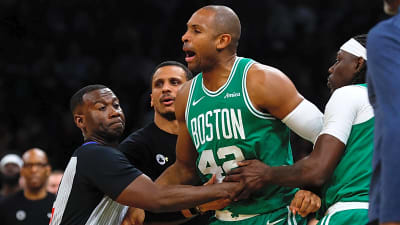
There’s an almost formulaic pathway to becoming a deity for Toronto-born stars of the Toronto Maple Leafs and Mitch Marner should’ve certainly grasped at this attainable goal during his nine-year tenure with his boyhood club. Marner was traded to the Vegas Golden Knights on Monday, packaged with an eight-year contract reportedly worth $12 million per season. It’s a bittersweet ending to Marner’s tenure with the Maple Leafs and while recency bias may portray the idea that the fan base, media and other components of Toronto’s hockey ecosystem wished for a shift departure, it wasn’t always this way.
Marner could’ve been God in Toronto, but he elected to be Ozymandias.
And it wasn’t all bad. The longview of Marner’s tenure with the Maple Leafs dictates that he was equal parts scintillating and frustrating, an all-world playmaker who shrivelled up in the biggest moments of his career, a player who edified the Southern Ontario dream of playing for the Maple Leafs, only to take a principled stand — at least the first time around — to maximize the fruits of his labour, while adoring fans cast their wishes upon him.
Marner knew the deal. He was a star, not quite a prodigy like John Tavares, in the Greater Toronto Hockey League with the Vaughan Kings and Don Mills Flyers, he won the Memorial Cup MVP with the London Knights and floated to the podium when the Maple Leafs selected him fourth overall in the 2015 NHL Draft. It was the dawn of a new era for the Maple Leafs and when Marner, along with Auston Matthews and William Nylander arrived on the scene during the 2016-17 season, it portended a bright, uncharted future.
Marner’s dynamic skating, ability to weave through traffic and a nearly uncharted ability to find inventive passing lanes immediately turned him into one of the Leafs’ most dynamic stars. During the 2018-19 campaign, Marner recorded 26 goals and 94 points, the most points by a Leaf since Mats Sundin. The invocation of Sundin here may seem blasphemous, but six years ago, you could strongly argue that Marner and Matthews were the most beloved stars in this market since the great No. 13 was traded to the Vancouver Canucks as a favour to the organization.
The ensuing summer may have been the accelerating point for some when considering the stark erosion of Marner’s good will, but for the vast majority of the fanbase, Marner was still very much the homegrown prodigy who would help the team finally lift the Cup. Marner, Tavares, and several other Maple Leafs players watched the Raptors win their first NBA title last that summer, and were suitably enveloped in the unrelenting, manic love that their comrades received, while handing out a basketball the following year for the team’s best or most impactful player in a winning effort, until Mike Babcock, the lone subject within the Leafs organization who treated Marner with real misconduct was fired.
There was an avenue for Marner to receive Sundin-esque admiration, but his camp squeezed the Maple Leafs in the ensuing months, and the star winger held out during the first day of training camp, before signing a six-year pact worth $10.893 million per year on September 13, 2019. For a small faction of the Leafs’ biosphere, this was the accelerating point towards an erosion of good will, but most carried onward with the same reverence for Marner, who would surely propel the Maple Leafs to a Stanley Cup.
Somewhere down the line, Marner felt that an adoring public turned on him. It’s unclear if he began to feel this way during the pandemic season, or if he felt unsupported by the organization when Babcock treated him with real cruelty, but there’s a symbiotic relationship with playoff failure: the promise of youth and potential only lasts so long and after the Maple Leafs reached their nadir by surrendering a 3-1 series lead to a far less talented Montreal Canadiens side during the 2019-20 campaign, there were real expectations attached to playoff performance that Marner and his comrades couldn’t deliver. Perhaps he felt that he wore the majority of the blame for the Leafs’ failures, but criticism will become incrementally more pointed if a team playing in the world’s largest hockey market routinely failed to live up to the sum of their Formula One-engineered parts.
Marner currently stands as the fifth-leading scorer in Maple Leafs history with 221 goals and 741 points in 657 games. By any objective measure, he is one of the 20 best players in franchise history and that may be slightly too critical, but he won’t be receiving a statue on Legends Row and while that in and of itself isn’t a tragedy, it’s a bittersweet development. What constitutes fair criticism of Marner? It’s certainly not the public berating Babcock subjected him to, and he faced a lot of criticism that went well past the scope of reason following the team’s exit in May. He thanked a reporter for providing him with an act of kindness that would keep him safe, and threats against his safety were always measures that were horribly unfair.
The only problem that exists here is that Marner didn’t seem willing to receive reasonable criticism of his game, either. Marner apparently felt that he took a disproportional amount of criticism for the team’s playoff failures. The two components that validate the erosion of his public goodwill are as follows: while Marner was well within his rights to negotiate a contract commensurate to his talent and production, he stated that he always wanted to be a Maple Leaf, while seeming intent on squeezing the team for every last dollar, and then refused to answer good faith questions about any aspect of the discussion. He didn’t have to tell media that he wanted to remain with the Maple Leafs if this was a flexible position, and that’s what erodes public goodwill in this hockey-mad town.
And the second component is even more simple: Marner effectively bet on himself this year and after a tour-de-force regular season where he posted a career-best 102 points, he played the worst game of his career in Game 5 against the Florida Panthers, and then submitted the second-worst game of his career during Game 7, where he was booed relentlessly and beers were strewn onto the ice during the handshake line. This is the bittersweet part, too. Marner was sensitive to criticism and would’ve shut up all his critics if he submitted a reasonable facsimile of his regular season production when the Core Four era faced referendums. It is more than fair to illustrate the ebbs and flows of this dynamic.
Seeing Mitch Marner sign with Vegas for the same amount the Leafs offered him before the season while John Tavares takes a $7m paycut to stay and Matthew Knies hammers out a deal that works for both sides before he hits July 1st really eases the blow of losing him as a player
— Аlex Hobson (@AHobsonMedia) July 1, 2025
Tavares understood the pathway to becoming a deity in Toronto and they’re in different stages of their careers. When he was Marner’s age, he signed a top-of-the-market deal and got all the money he could to join the Maple Leafs. Tavares wanted to remain with the Maple Leafs for the duration of his career and signed a below-market deal to remain with the organization when his contract expired. He’s getting a statue on Legends Row. This is how it could’ve ended for Marner down the line, too. He could’ve been God, but an ineffective bet on himself during the playoffs, combined with a flawed ideology that a deeply passionate fan base didn’t love him enough, renders the end of his Leafs’ tenure in a manner befitting Ozymandias.
More must-reads:
- Sharks sign former top 10 pick to three-year extension
- Canucks re-sign veteran scorer in surprising turn of events
- The 'First-overall NHL Draft picks' quiz
Breaking News
Trending News
Customize Your Newsletter
 +
+
Get the latest news and rumors, customized to your favorite sports and teams. Emailed daily. Always free!








